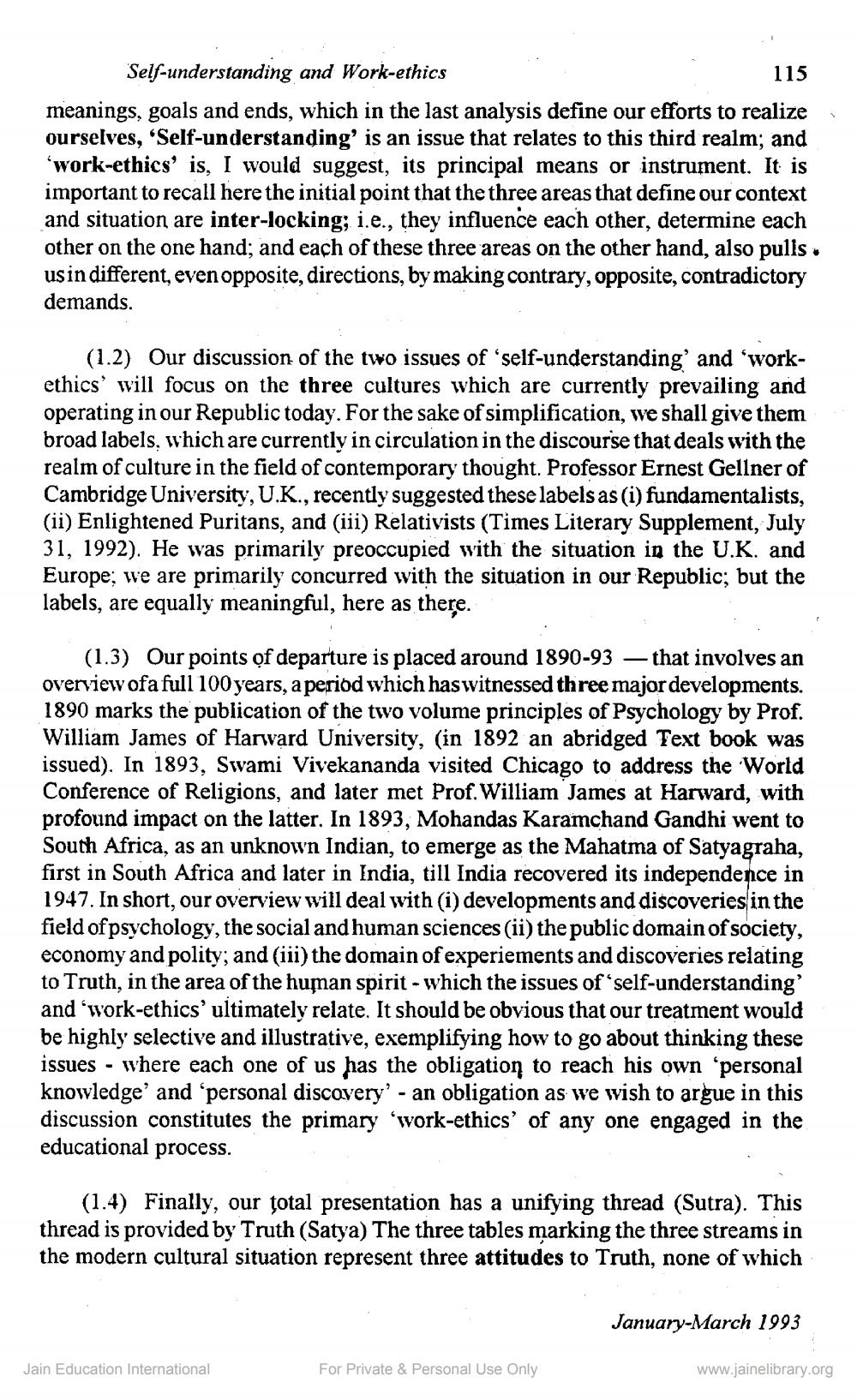________________
Self-understanding and Work-ethics
115 meanings, goals and ends, which in the last analysis define our efforts to realize ourselves, 'Self-understanding' is an issue that relates to this third realm; and 'work-ethics' is, I would suggest, its principal means or instrument. It is important to recall here the initial point that the three areas that define our context and situation are inter-locking; i.e., they influence each other, determine each other on the one hand; and each of these three areas on the other hand, also pulls. usin different, even opposite, directions, by making contrary, opposite, contradictory demands.
(1.2) Our discussion of the two issues of 'self-understanding' and 'workethics' will focus on the three cultures which are currently prevailing and operating in our Republic today. For the sake of simplification, we shall give them broad labels, which are currently in circulation in the discourse that deals with the realm of culture in the field of contemporary thought. Professor Ernest Gellner of Cambridge University, U.K., recently suggested these labels as (i) fundamentalists, (ii) Enlightened Puritans, and (iii) Relativists (Times Literary Supplement, July 31, 1992). He was primarily preoccupied with the situation in the U.K. and Europe; we are primarily concurred with the situation in our Republic; but the labels, are equally meaningful, here as there.
(1.3) Our points of departure is placed around 1890-93 — that involves an overview ofa full 100 years, a period which haswitnessed three major developments. 1890 marks the publication of the two volume principles of Psychology by Prof. William James of Harward University, (in 1892 an abridged Text book was issued). In 1893, Swami Vivekananda visited Chicago to address the World Conference of Religions, and later met Prof. William James at Harward, with profound impact on the latter. In 1893, Mohandas Karamchand Gandhi went to South Africa, as an unknown Indian, to emerge as the Mahatma of Satyagraha, first in South Africa and later in India, till India recovered its independence in 1947. In short, our overview will deal with (i) developments and discoveries in the field of psychology, the social and human sciences (ii) the public domain of society, economy and polity; and (iii) the domain of experiements and discoveries relating to Truth, in the area of the human spirit - which the issues of 'self-understanding' and 'work-ethics'ultimately relate. It should be obvious that our treatment would be highly selective and illustrative, exemplifying how to go about thinking these issues - where each one of us has the obligation to reach his own 'personal knowledge and personal discovery' - an obligation as we wish to argue in this discussion constitutes the primary 'work-ethics of any one engaged in the educational process.
(1.4) Finally, our total presentation has a unifying thread (Sutra). This thread is provided by Truth (Satya) The three tables marking the three streams in the modern cultural situation represent three attitudes to Truth, none of which
January-March 1993
Jain Education International
For Private & Personal Use Only
www.jainelibrary.org




